Enhancing observational skills Normal Science Worksheets for Ages 4-9
8 filtered results
-
From - To
Unlock your child’s potential with our “Enhancing Observational Skills” science worksheets for ages 4-9. Tailored to develop keen perception, these engaging activities foster critical thinking and a love for science. Kids will explore nature, categorize objects, and notice even the smallest details, sharpening their ability to observe their surroundings with precision. Perfectly designed to align with early learning standards, our worksheets make learning both fun and effective. Help your young scientist excel and thrive with these enjoyable, skill-building exercises. Discover a world of knowledge and curiosity at Kids Academy—where every child’s journey begins.
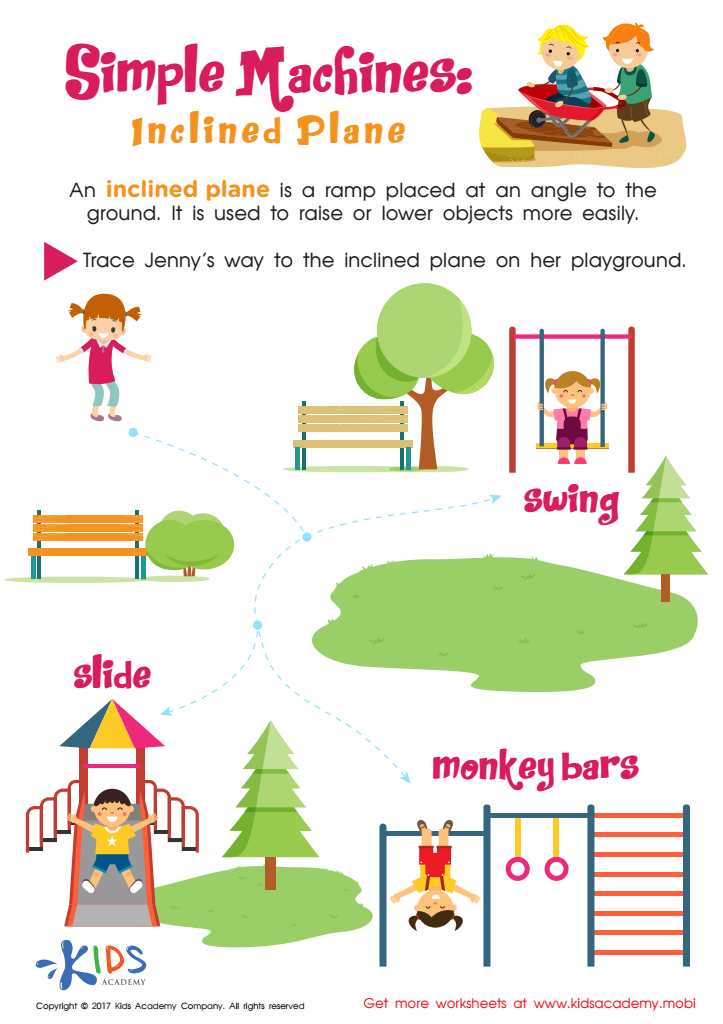

Simple Machines Inclined Plane Worksheet
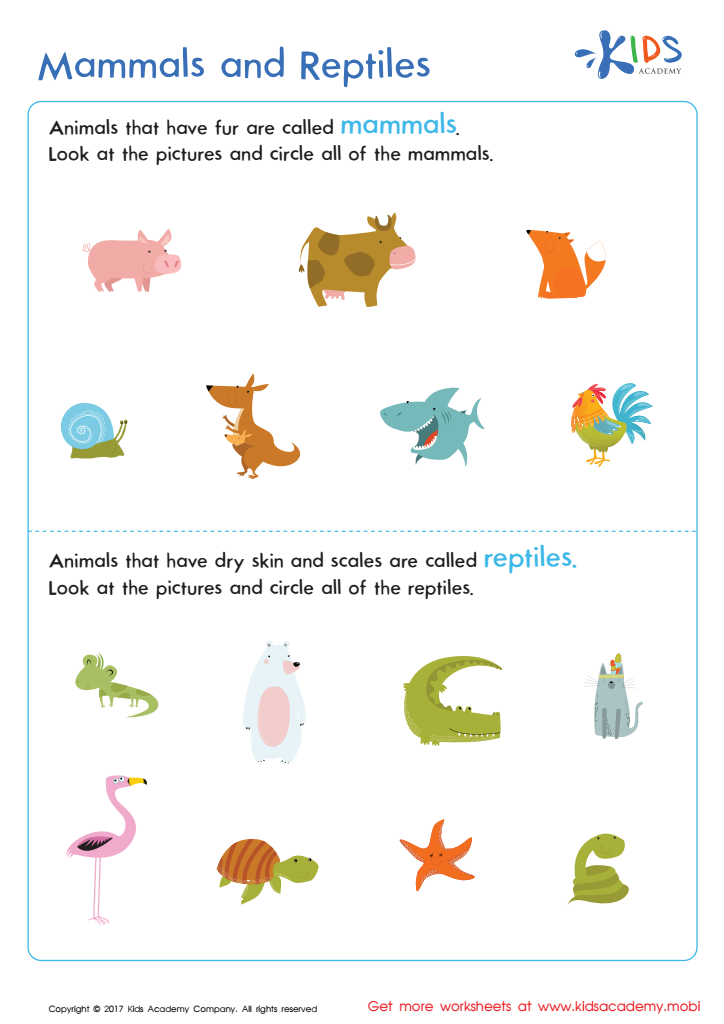

Mammals and Reptiles Worksheet
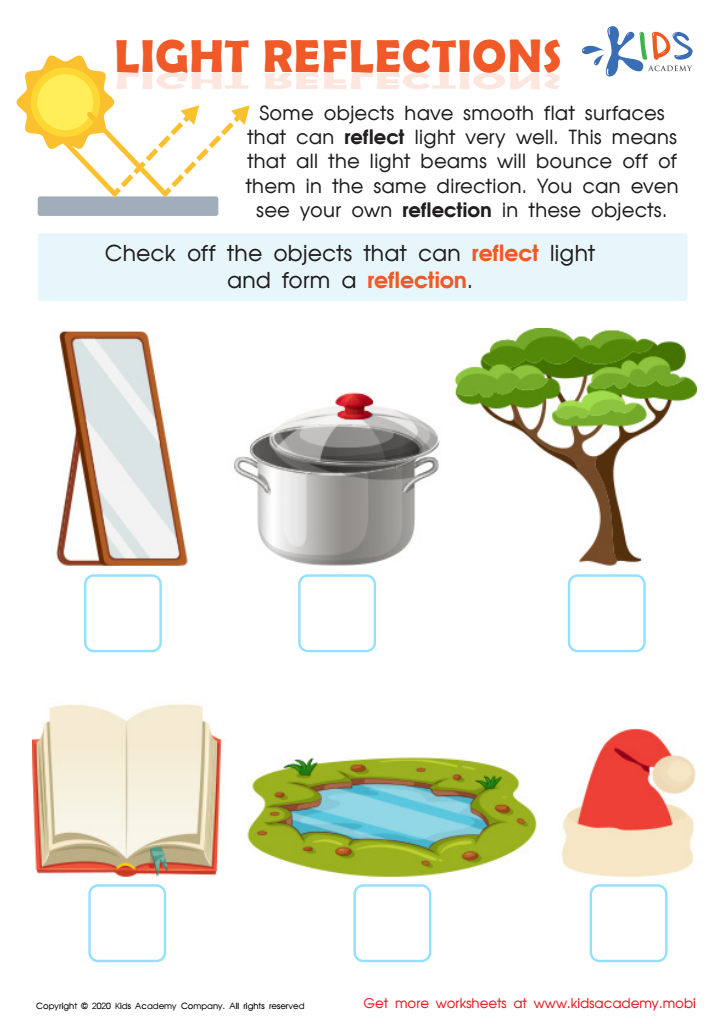

Light Reflections Worksheet
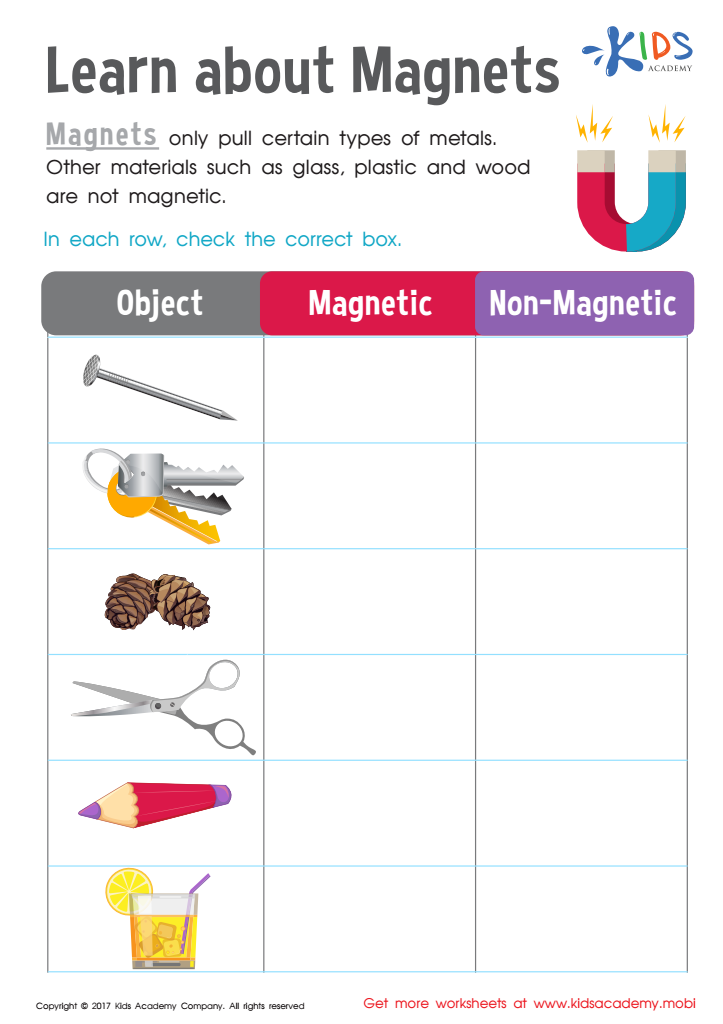

Magnetic Or Not Worksheet
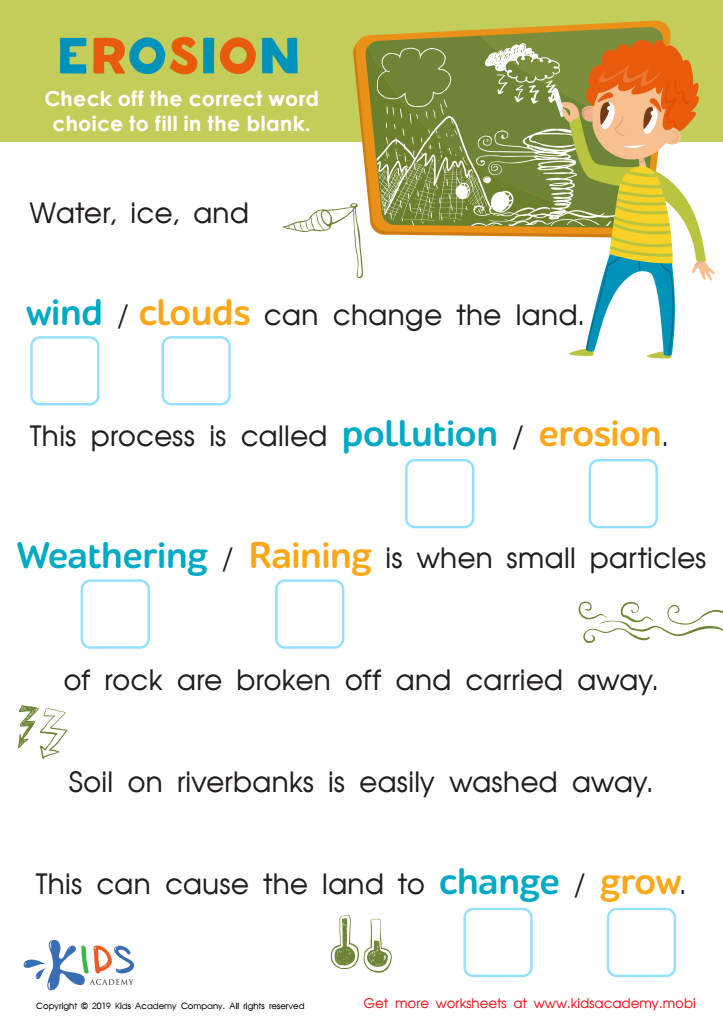

Erosion Worksheet
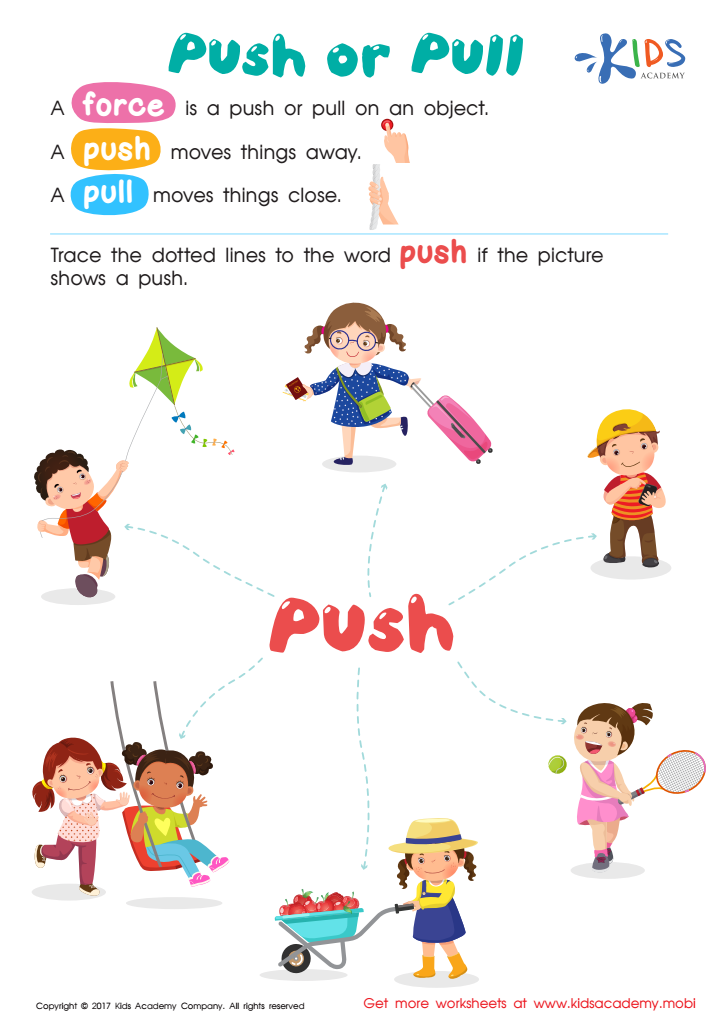

Push or Pull Worksheet
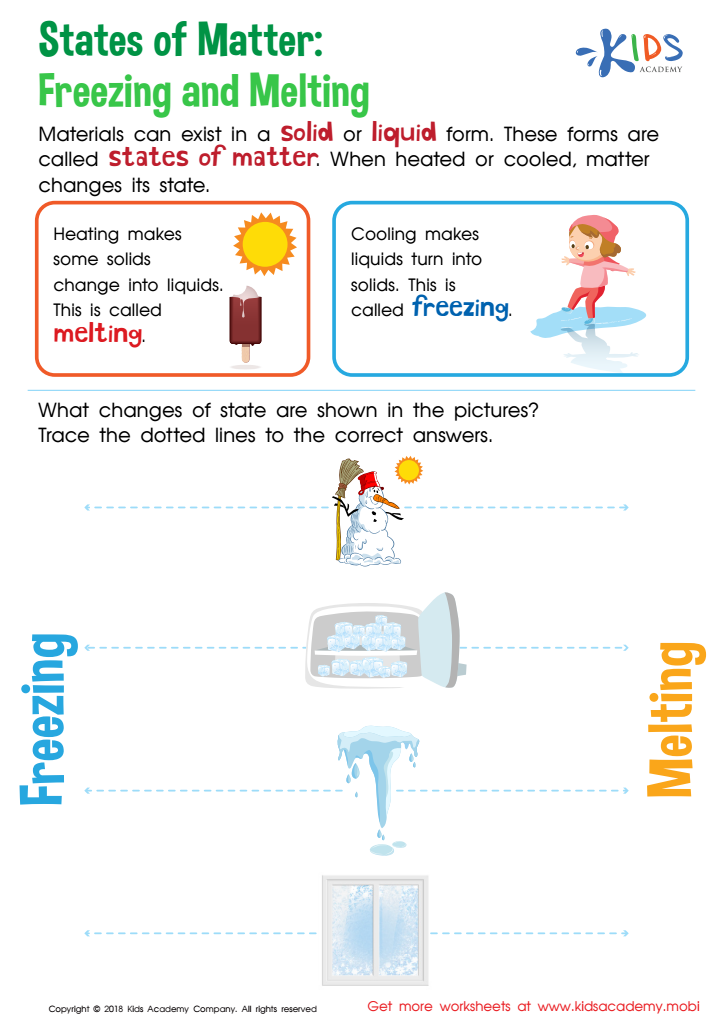

States of Matter: Freezing and Melting Worksheet
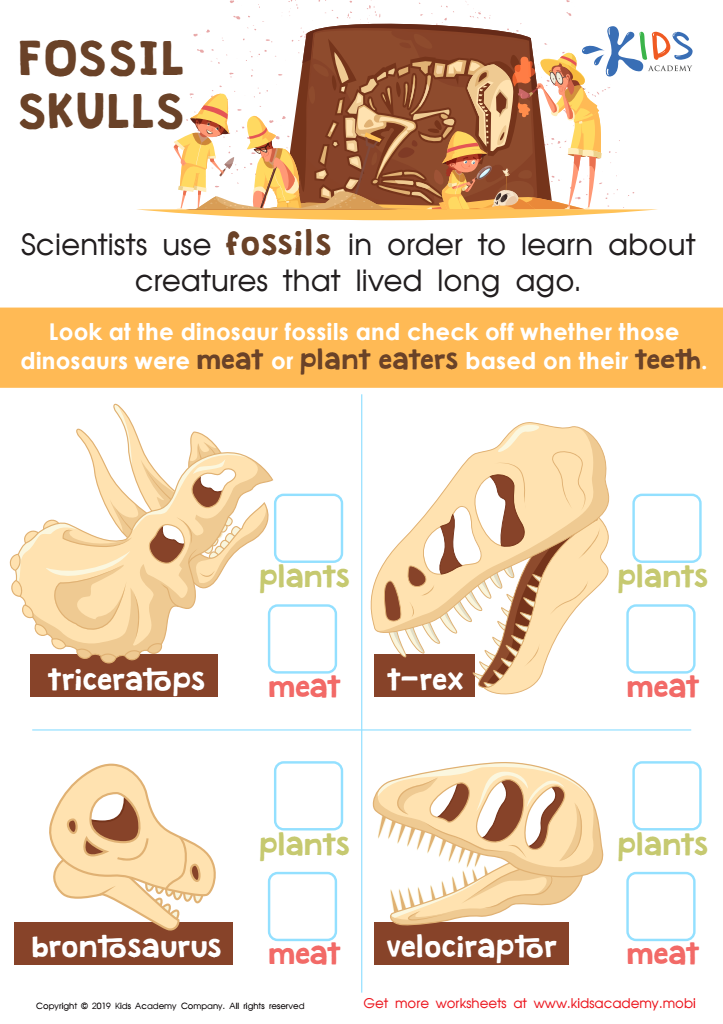

Fossil Skulls Worksheet
Enhancing observational skills in young children, aged 4-9, is crucial as it lays the foundation for scientific thinking and overall cognitive development. At this age, children are naturally curious and eager to explore their surroundings. By nurturing their ability to observe carefully, parents and teachers can help them develop critical thinking skills, attention to detail, and a love for inquiry. These skills are not only essential for science but also for everyday problem solving and learning in various subjects.
Observational activities, such as noting the growth of a plant or the changes in weather, encourage children to ask questions, make predictions, and draw conclusions. This process builds their analytical skills and can boost academic performance. Moreover, it enhances language development as they describe their observations, enriching their vocabulary and communication skills.
Further, observational skills help in developing empathy. By noticing and interpreting emotions and changes in the environment, children learn to understand others' perspectives and react accordingly. For teachers and parents, fostering these skills means providing children with tools to become more aware, involved, and thoughtful individuals. Ultimately, investing in the enhancement of observational skills equips children with a solid foundation for lifelong learning and adaptability in a rapidly changing world.
 Assign to My Students
Assign to My Students




















